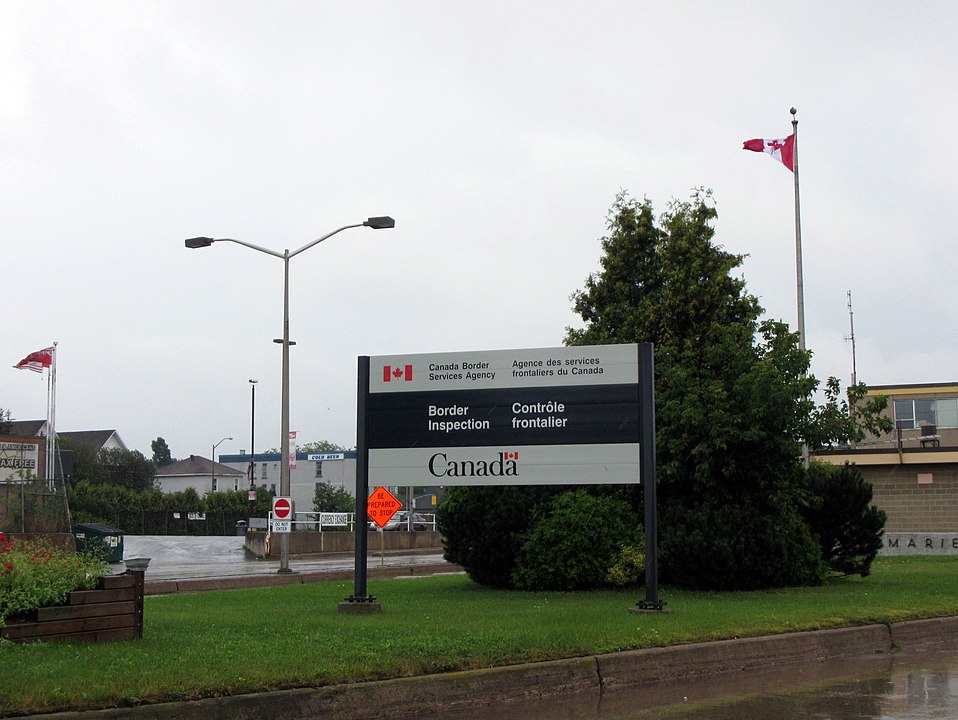Canada News
How the Canada Border Services Agency tolerates and even encourages refugee mistreatment

FILE: Canadian Border Inspection (Photo by Bohao Zhao/Wikimedia Commons, CC BY 3.0)
Refugee advocates have long known about systemic problems with immigration enforcement in Canada, resulting in wrongful detentions and deportations, as well as people being tortured upon return to their countries of origin.
Our new research explains why these problems exist.
Flaws in Canada Border Services Agency’s (CBSA) structure and mandate mean that misconduct is tolerated and even incentivized. Independent oversight of CBSA and legislative changes are needed to protect refugee rights.
Deportation affects refugee rights
Our findings show that more than half the people deported from Canada each year made refugee claims. While some people are ready to return home, others still fear persecution.
Decisions on a refugee claim can be wrong. Outcomes of refugee claims depend on the Immigration and Refugee Board member who hears the claim, the quality of legal representation and subjective credibility determinations made by those hearing claims.
People who are at risk of persecution, torture or worse can be denied refugee status and face imminent deportation. For these reasons, deportation is closely linked to refugee rights.
How someone is treated during the deportation process matters. CBSA places an emphasis on “timely removals” at the expense of respecting rights. And although Canada prides itself on its safeguards, they are insufficient.
For example, people can apply for a pre-removal risk assessment to demonstrate the risk they face prior to being deported. The risk assessment was created to meet Canada’s obligations to protect people from persecution.
But in 2012, the government introduced legislation that limits access to the pre-removal risk assessment. Since then, people can only apply for it if they remain in Canada for at least a year after their refugee claim was refused.
Our research found that whether someone is deported before the end of that year comes down to chance, defeating the very purpose of the risk assessment.
CBSA not equipped for sensitive work
Deportation is sensitive work. Yet the CBSA lacks the structure and management controls to carry out activities with human rights implications.
We obtained job descriptions for senior leaders in CBSA who oversee enforcement. They do not mention human rights treaties or obligations. There is no evidence that performance measures for leaders, front-line staff or the agency as a whole include compliance with international human rights obligations.
Instead, CBSA documents emphasize the need for timely removals, specifically enforcing a deportation within one year of a refused refugee claim. Such fast deportations, as mentioned, may not leave refugee claimants with enough time to apply for the risk assessment.
Legal representatives we interviewed reported many instances of misconduct by CBSA officials, such as lying, abuse of power, concocting documents and baseless detentions to enforce a deportation. These tactics advance, rather than violate, CBSA’s mandate in the absence of requiring its employees to honour human rights obligations.
The CBSA also lacks an independent oversight body to review its work, investigate complaints and make binding recommendations. That means complaints about the conduct of CBSA officers must be made to CBSA.
A complaint can work against the person being deported. Many refugee lawyers told us they don’t bother reporting misconduct.
Lydia, a refugee lawyer, told us:
“I’ve complained about CBSA officers over the years with absolutely no effect. In fact, several officers who lied under oath were promoted after they had engaged in really disreputable conduct. Why waste your time?”
Legal help beyond reach
The deportation process is complex and unpredictable. Delaying or preventing a deportation requires expert legal advice. But it’s not easy to get legal representation for deportation cases, especially on a tight timeline.
Deportation cases require intense effort over a short period of time. Many experienced refugee lawyers rarely take a deportation case unless it’s a pre-existing client.
While refugees in Ontario may be eligible for legal aid, it doesn’t cover the real number of hours it takes to vigorously pursue the case. Sathya, a refugee lawyer, told us:
“It’s literally the worst work in this field …. It wipes every single thing off your desk. You have to put aside everything, cancel all your evening plans because you’re going to be pulling all-nighters. It is very, very difficult.”
What’s more, legal fees for deportation cases are often thousands of dollars, which is unaffordable for many refugee claimants.
Addressing injustice in deportations
An agency that conducts deportations must respect human rights obligations and the Canadian Charter of Rights and Freedoms. CBSA job descriptions should be revised to require compliance, which should be measured in performance evaluations.
To further address bias, CBSA needs to institute an anti-racism strategy, like the Anti-racism Strategy 2.0 being implemented within Immigration, Refugees, and Citizenship Canada.
The Canadian government should repeal the one-year bar on a refugee claimant seeking a pre-removal risk assessment to ensure that people at risk of persecution are not deported.
Finally, given the life-or-death implications of their work, the CBSA needs independent oversight. The Liberal government has proposed a bill to introduce such a watchdog. That bill must be passed to ensure respect for refugee rights.![]()
Kathryn Tomko Dennler, Immigration Researcher, York University, Canada and Brianna Garneau, PhD Candidate, Socio-legal Studies, York University, Canada
This article is republished from The Conversation under a Creative Commons license. Read the original article.





















